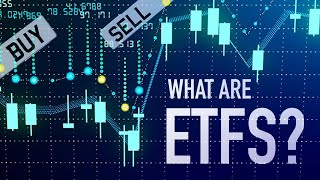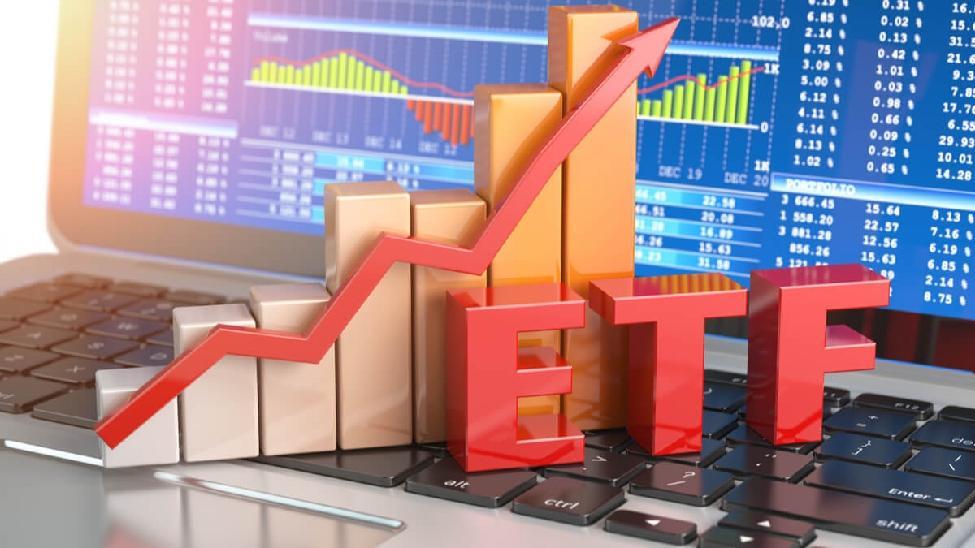Are you looking to start investing but need help figuring out where to begin? Exchange-traded funds (ETFs) are a great option for those new to investing, as they are simple to understand and usually carry lower fees than other investment options. ETFs also offer an array of advantages that makes them attractive compared with mutual funds or individual stocks—including tax savings, less trading costs, portfolio diversification with just one purchase, more liquidity than index funds, and greater flexibility.
In this blog post, we'll explore the basics of ETFs for beginners, from what they are, how they work, and why you should consider investing in them. Whether it's your first time hearing about ETFs or if you've already started researching their potential benefits, you will have a better idea of whether ETFs fit into your financial plan by the end of this post.
What are ETFs, and why should you consider them for investing in the stock market
Exchange-traded funds (ETFs) are investment vehicle that gives you access to a diversified portfolio of stocks, bonds, or other investment products with just one purchase. ETFs trade on exchanges like stocks, allowing investors to buy and sell them throughout the trading day at market prices. They can be bought and sold like mutual funds but with lower fees. ETFs also offer greater tax efficiency than other investment vehicles, such as mutual funds.
Many investors consider ETFs a great option for those just investing because they help reduce risk. When you invest in an ETF, you’re purchasing a fund that holds various stocks, bonds, or other investments. This helps diversify your portfolio and reduce the risk of investing in one stock. As ETFs trade on exchanges, they tend to be more liquid than mutual funds.
Another attractive feature of ETFs is that they often have lower fees than other investment options. They also offer greater flexibility. For example, some ETFs track a specific index or sector, while others are managed by fund managers who try to time the market to maximize returns.
Finally, ETFs can give investors tax advantages because they have lower turnover than other investments, meaning you pay fewer taxes on gains. Additionally, if you own an ETF for more than a year, any gains you make will be taxed at the lower long-term capital gains rate.
Benefits of Investing in ETFs For Beginners
1. Low fees - ETFs often have lower fees than other investment vehicles, making them an attractive option for cost-conscious investors.
2. Tax efficiency - ETFs typically have lower turnover than mutual funds, resulting in fewer taxes on gains.
3. Diversification - As ETFs hold a variety of stocks, bonds, or other investments, they help reduce risk by diversifying your portfolio.
4. Greater liquidity - ETFs can be bought and sold throughout the trading day like stocks, which can provide investors with greater flexibility.
5. Increased transparency - ETFs must disclose their holdings regularly, giving investors a better understanding of the fund.
6. Professional management - Some ETFs are actively managed by professional fund managers who try to time the market to return.
7. Wide range of investment choices - ETFs offer various investments, such as stocks, bonds, and commodities, allowing investors to choose the best option for their circumstances.
8. Lower risk - ETFs provide investors with lower risk because they are diversified and don’t rely on the performance of a single stock or sector.
9. Ease of trading - ETFs trade on exchanges like stocks, which makes them simpler to buy and sell than other more complex investments.
10. More affordable - ETFs can be a more affordable option for investors, as they usually carry lower fees than other investment vehicles.
Types of ETFs, Including Sector and Country Funds
ETFs are available in various investments, including sector funds (which focus on specific industries such as energy or technology) and country funds (which invest in the stock markets of individual countries such as China or Japan). ETFs can also be based on commodities like gold or oil, bond funds, currency funds, leveraged funds, and inverse funds.
How to Choose the Right ETF for You

When it comes to choosing the right ETF for you, there are a few factors that should be taken into consideration.
The first step is understanding what type of investments you want your money to go towards. This will help guide your decision-making process as different ETFs specialize in different areas, from stocks and bonds to commodities and currencies.
Once you understand the type of investments you wish to pursue, looking into the ETF's performance history and fees associated with each fund is important. Investing in ETFs with low fees and a good track record can help ensure that your returns are maximized over time.
It is also important to understand the risks associated with ETFs, as losses are always potential. If a particular ETF has no impressive track record or volatile returns, choose another ETF that more closely aligns with your goals.
Another factor to consider when choosing the right ETF for you is liquidity. Liquidity refers to how quickly and easily you can buy or sell an ETF. ETFs with higher levels of liquidity are easier to trade, while those with lower liquidity may be more expensive to purchase and harder to sell if the market turns against them.
Strategies for Investing in ETFs
Once you have chosen the right ETF, it's time to start investing. There are several different strategies for investing in ETFs that can help maximize your returns.
One strategy is dollar-cost averaging, which involves regularly buying a set amount of ETF shares over time. This helps reduce market volatility and can help ensure that you buy more shares when the price is low and fewer shares when the price is high.
Another strategy for investing in ETFs is to employ a monthly portfolio rebalancing technique, which helps keep your investments aligned with your goals by adjusting the composition of your portfolio regularly.
Finally, it is important to understand how much risk you are comfortable with. Different ETFs involve different levels of risk, so it's important to know your threshold to make the most informed decisions when investing.
Understanding Fees and Taxes on Your Investments
Finally, when investing in ETFs, it is important to understand the fees and taxes associated with your investments. Most ETFs have lower fees than mutual funds or individual stocks, but it's still important to understand what you are paying for your investments.
Additionally, tax implications may be associated with certain types of ETF investments. It is important to be aware of the tax laws in your country and understand how they may impact your investments.
FAQs
What are the advantages of investing in ETFs?
ETFs offer a variety of advantages compared with other investment options. These include lower fees, diversification with just one purchase, more liquidity than index funds, and greater flexibility. Additionally, they provide investors access to different markets or sectors without purchasing individual stocks. Finally, ETFs provide tax savings with their ability to be sold and reinvested at any time.
How do I get started investing in ETFs?
Before getting started, it is important to research different ETFs and understand how they work. You should also familiarize yourself with the various available ETFs, such as stock, bonds, and commodities. Once you have a better understanding of the different ETFs available, you can begin looking for one that fits your investment goals and risk tolerance. You should also consider consulting with a financial advisor or broker who can provide more in-depth guidance on investing in ETFs. Lastly, it is important to understand that ETFs are subject to market fluctuations, so it is important to remain vigilant about your investments and monitor them regularly.
What risks should I be aware of when investing in ETFs?
There are several potential risks associated with investing in ETFs. These include liquidity risk (the risk that there may not be enough buyers or sellers for a given ETF), market risk (the possibility of losses due to changes in the overall stock market), and tracking error (the difference that exists between an ETF’s performance and its underlying index). Additionally, as with any investment, ETFs are subject to fluctuation in value, and it is important to regularly monitor your investments. Finally, you should also be aware of any fees associated with investing in ETFs.
Conclusion
ETFs are a great option for those new to investing, as they provide investors with various advantages. These include lower fees, tax savings, more liquidity than index funds, and greater flexibility. Additionally, ETFs allow investors to access different markets or sectors without purchasing individual stocks. Before investing in ETFs, it is important to research different ETFs and understand how they work. Additionally, it is crucial to know the risks associated with investing in ETFs and monitor your investments regularly. With this knowledge, you will be well on your way to a successful ETF investing journey!




